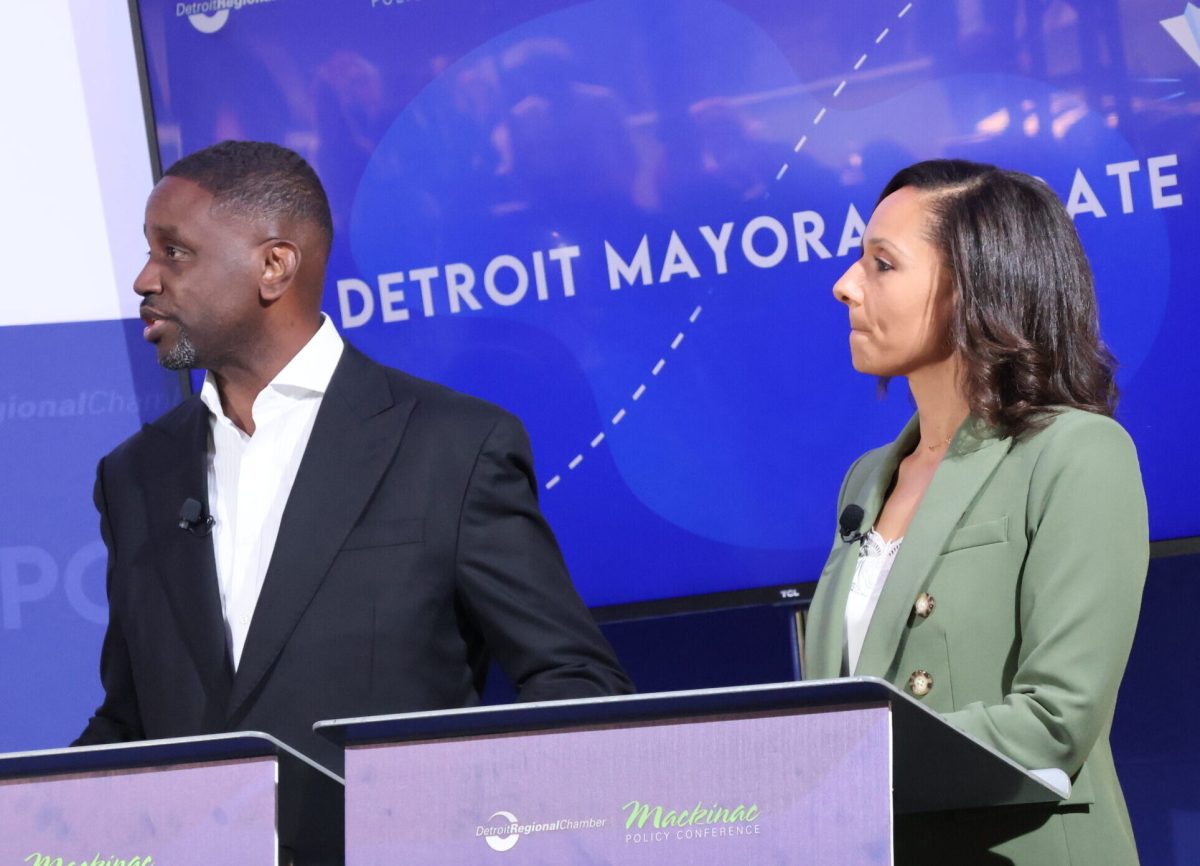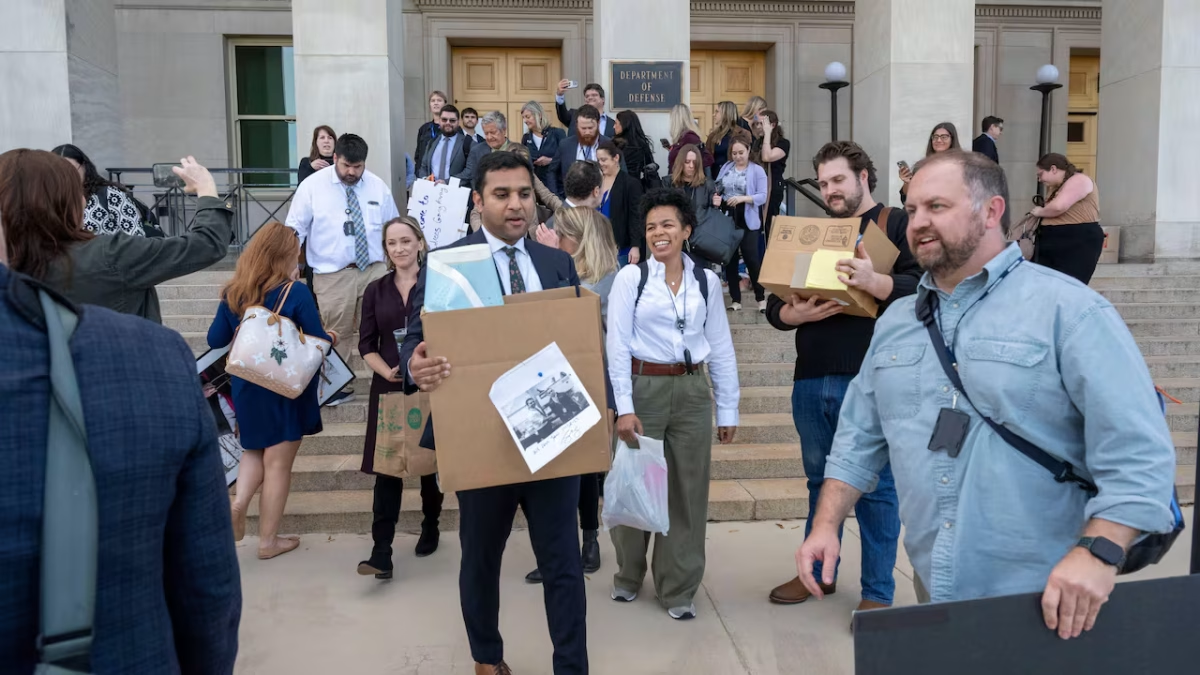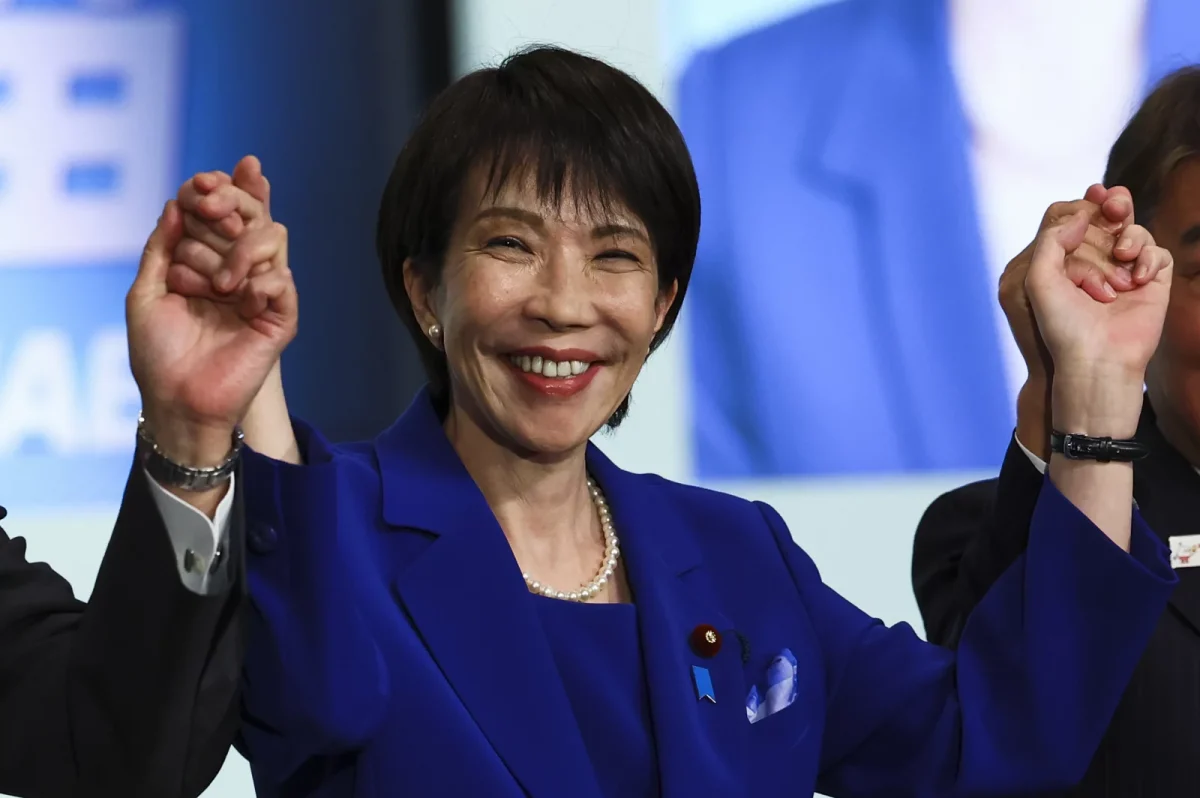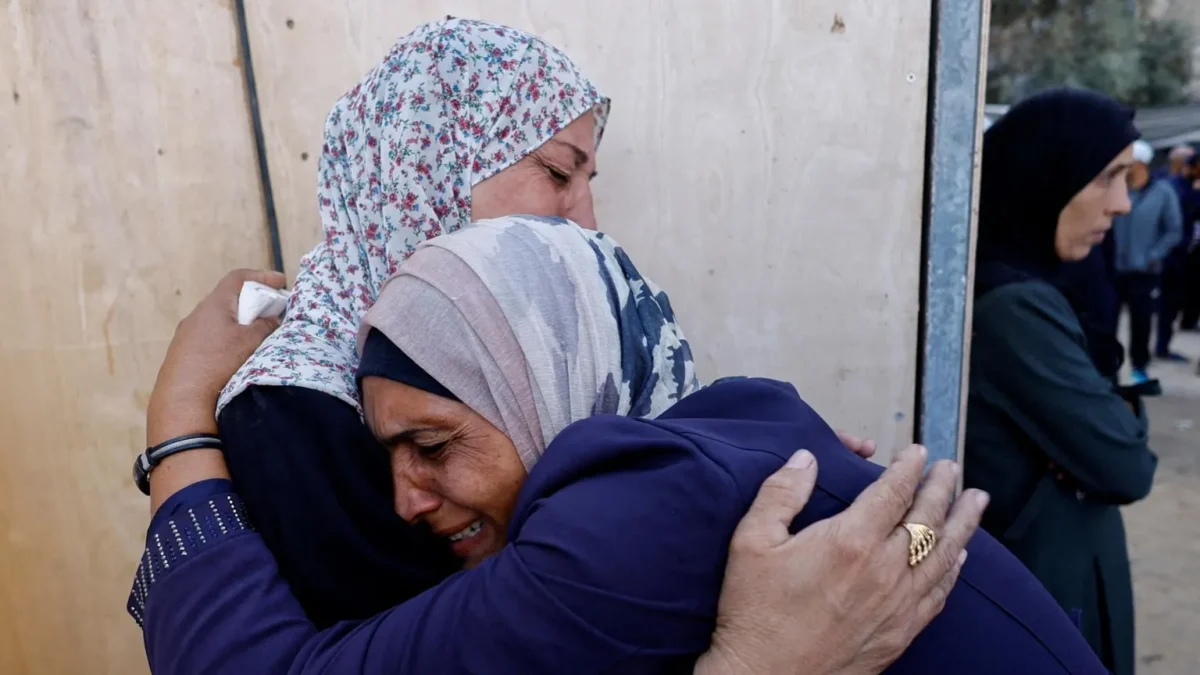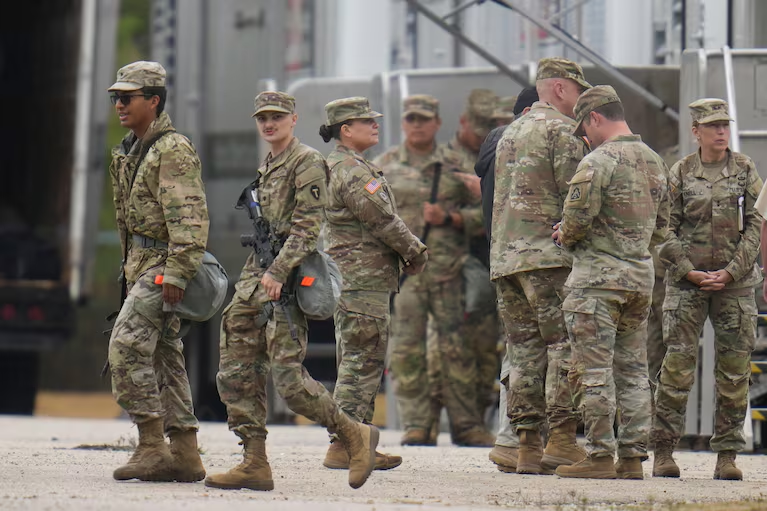On Oct. 15, WXYZ Channel 7 hosted the 2025 mayoral debate between candidates Mary Sheffield and Reverend Solomon Kinloch.
Sheffield currently serves as City Council president of Detroit. Rev. Kinloch is currently the senior pastor of Triumph Church.
Voting for these two candidates begins on Nov. 4.
“We keep hearing that crime is down in the city of Detroit — murders, carjackings, robberies — but nearly every week, another Detroit teen is caught up in some sort of shooting. We hear it all the time here on the news. How do you explain the disconnect between the statistics and what people see in their neighborhoods, and what will you do if you are elected mayor to solve this problem?”
“I believe that is the trouble with failed leadership, that we have candidate running for mayor, that believes that the citizens of Detroit want headlines and headlights instead of headway. I’ve had the honor, and I’ve had the burden, although it was a blessing to be able to give children dignity in death that they didn’t give in life because their life was taken too soon. One of the reasons I believe that there’s such a disconnect is because Detroiters deserve two things; they deserve safety and they deserve justice. And the reality is, anytime you have a department that’s grading their own tests, you’re going to have a problem with the fudging of the answers and the fudging of the numbers. We have to hold those that are in leadership accountable to do what they have promised the citizens of Detroit to do — that they’re going to deliver not just justice but safety,” Kinloch said.
“So public safety and leadership has been one of the most challenging things that I’ve had to encounter — seeing the devastation that it causes our communities and our families. No one should feel unsafe in their home and in their neighborhoods. Now, while we’ve had historic record-lows of crime in Detroit, and just this year alone, we’ve seen a reduction in all categories of violent crime compared to last year. We know that one life lost is still far too many. I believe in a comprehensive and holistic approach to public safety that is rooted in strong partnerships with our law enforcement agencies in our community. I will ensure as mayor that we are investing in prevention more year round, youth employment for our young people, ensuring that we’re expanding our community violence intervention work, that we are launching the city’s first ever office of gun violence prevention and that we’re investing in intervention, expanding community policing efforts, boots on the ground in our neighborhoods and also our mental health response,” Sheffield said.
“President Trump has ordered the deployment of National Guard troops to several big American cities. This has sparked legal challenges, protests and controversy. As mayor, would you welcome National Guard troops in the city of Detroit to help fight crime and enforce our immigration laws?”
“Not in a martial law fashion, but in collaboration, in order to make sure that we’re protecting soft spots throughout the city of Detroit. We have a problem. 58% of the people polled do not believe that institutional politicians take their considerations into the highest priority and agenda. At that point, people are looking for not just builders — they are looking for also people that go on to fight and stand up for them. That’s why I’m in the race. That’s why I’ve been able to cross over seven other individuals and get to the number two spot in order to participate in this, because people are looking for something different. They’ve heard this talk before. Crime didn’t just start. It’s been going on for 12 years now. All of a sudden, we want to talk about doing something. What have we been doing for the last 12 years that has made a difference in their lives? I understand what [Sheffield’s] talking about. She’s got experience. But how has that experience changed the experience of the people,” Kinloch said.
“No, I am strongly opposed to any national guard coming to the city of Detroit. I do not believe that militarizing our neighborhoods is the solution. What we must do is become a national model of how to drive crime down in Detroit. And as I mentioned earlier, it is about a coordinated strategy that is rooted in partnerships with our law enforcement agencies and our communities. We know that the National troops cause some very, very unfortunate memories of 1967 and we do not want to go back. And so what we do — or I welcome — I should say, is federal resources that will address the underlying social issues of gun violence in our city, mental health, job training, education and housing, so that we can actually address the root causes, and we will continue to work with our law enforcement agencies in our community partners to drive crime down, and for the first time ever, launching an office of gun violence prevention that would treat gun violence as a public health crisis. So no, I do not support the National troops, and we will ensure that they are not present in our communities,” Sheffield said.
“In 2013, Detroit filed the largest municipal bankruptcy in U.S. history. Since its recovery, the city has balanced consecutive budgets, hosted a record setting NFL draft, restored its historic train station, opened several new hotels and restaurants and won number one national awards for its cultural institutions and its public spaces. How would your administration keep this momentum going forward?”
“Well, no one is disputing the fact that some good things have happened in the city of Detroit. It’s just not good enough. But we’ve not seen that we have not come far. We just have not come far enough. When you look at a budget like Detroit and see that just a small portion of those resources have been allocated to people and neighborhood people have not been a priority. Budget is about priority, and we have prioritized big business, and we prioritize downtown but we have not prioritized the neighborhood. No one is saying that we are not open for business and we will not continue to be open for business. No one is trying to tear business down, but what we are trying to do is lift the citizens of Detroit up. We’re not trying to take chairs away from the table, but what we are trying to do is make sure that the people in this city have an opportunity to put chairs at the table,” Kinloch said.
“Council President, thank you for acknowledging some of the progress that we’ve made. And I think it’s important that we can recognize that we’ve made progress while also recognizing that there’s more work to do. And so $5.4 billion of economic growth has taken place over the last 12 years. I will ensure that we continue that by fostering a business friendly environment, reducing regulations, cutting red tape and making Detroit the best place in America to grow and start a business. We will also ensure that we’re driving property tax reform, as I mentioned earlier, a huge barrier to both businesses and residents. And we’re going to ensure that we’re investing in our workforce. We must invest in people to ensure that we’re attracting high wage, livable wage jobs and that Detroiters are at the forefront of receiving those jobs as we talk about economic growth. We must also ensure that small businesses are at the forefront of that conversation, because we have a unique opportunity to scale and to grow and to ensure that small businesses participate in the development and resurgence of our city,” Sheffield said.
“Recent national statistics show that Detroit’s overall poverty rate is about 34% making it the poorest major city in the United States. More than half of all children in this city are living below the poverty line. How will your administration combat poverty and create good paying jobs?”
“The Kinloch Promise will include, first of all, a children’s trust fund that every baby born in the city of Detroit will receive a seed of $1,000 and it will be allocated on a yearly basis up until that child gets to age of 18, and they can use that to open up a business, to go into college, to start a career, to buy a home or to invest in their community. The second thing we got to do is stop the exit of the African American middle class out of the city, and the way to do that is by making housing affordable in the city — but, also making sure that they have opportunities to make competitive wages in the city by tracking industries who will pay those competitive wages. The other thing is, we got to make sure we take care of the people that have already stayed here. We got retirees who’ve lost their pensions, we’ve got officers and other municipal workers who’ve lost their insurance. And it’s time to make sure that even if we can’t write the whole check, we got to start writing some checks to get them their money back,” Kinloch said.
“So I think about my grandmother, who was watching tonight, who struggled to make ends meet. Growing up, she went to sleep many nights hungry. She was 28 years old when she graduated from high school, and she was the first in her family to graduate from college and she later went on to become a nurse, but she always talked about education. Education was a tool that she used to change her life and her family’s life, and so I will start off by being a champion of education from cradle to career and also ensuring that we are attracting high wage, livable wage jobs in our city. No resident should have to work two and three jobs just to make ends meet. And so we’re going to be pushing for more jobs. I created the Industry Standards Boards, which brings our workers to the table to negotiate better wages and working conditions. And lastly, we must invest in people. We have a program, Skills for Life, Earn to Learn, that we are paying people to go back and get certifications and work. We must invest directly in people. And I’m also interested in exploring the new RX Kids program that provides direct funding to pregnant families as well,” Sheffield said.
The full debate can be found on WXYZ-TV Detroit’s Youtube Channel.



